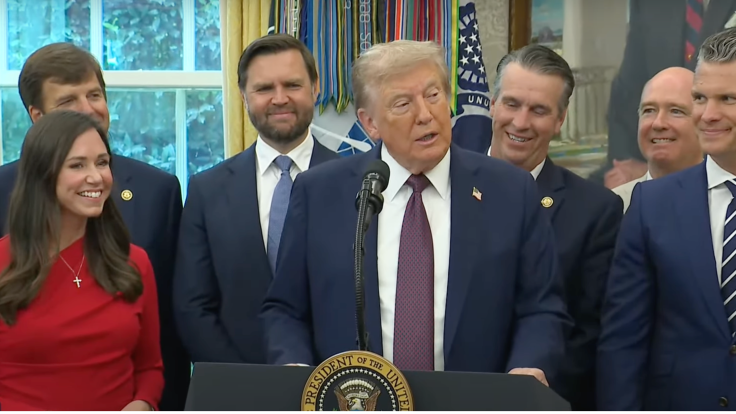Trump Slaps $100,000 Fee on H-1B Visas as Wealthy Investors Get Fast-Track 'Gold Card'
The White House plan could price out start-ups while offering millionaires an expedited path to US residency.

President Donald Trump on Friday, 19 September, signed a proclamation imposing a new $100,000 (£74,200) annual fee on H-1B visa petitions, in what the White House describes as a crackdown on the programme.
Announced in Washington, the move affects thousands of skilled foreign workers in the United States, particularly in technology and engineering. It coincides with a separate 'Gold Card' executive order, which offers a fast-tracked residency route for wealthy applicants via a seven-figure contribution.
The $100,000 H-1B fee
The H-1B visa is one of the most sought-after routes into the United States for skilled workers in speciality occupations. Each year, 65,000 visas are issued under the regular cap, plus 20,000 for US advanced-degree holders.
Under the new proclamation, employers must pay an annual $100,000 fee for each H-1B petition. Early guidance suggests it would apply to new petitions and renewals, though implementation details are still emerging.
The administration says the added cost will protect US jobs and deter firms from using H-1B workers as cheaper labour. Business groups and immigration lawyers warn the steep fee could price out start-ups and smaller firms and tighten hiring for hard-to-fill specialised roles.
Possible wage-rule changes
Alongside the fee, the White House signalled plans to raise 'prevailing wage' standards used to set minimum salaries for H-1B workers, via the Department of Labor's rule-making process.
Separately, a new congressional proposal would lift the long-standing $60,000 baseline toward $150,000 for certain roles; that figure is from legislation now being floated, not from Friday's proclamation.
Supporters argue higher wages would ensure foreign workers are paid market rates; critics say it could reduce entry-level opportunities and strain smaller employers. Legal experts also question whether sweeping changes can be enacted without Congress.
The separate 'Gold Card' order
Apart from H-1B, President Trump launched a 'Gold Card' programme—a residency-by-investment pathway. Individuals would provide a $1 million gift to the US Department of Commerce (or $2 million if sponsored by a corporation) in exchange for expedited processing toward permanent residency, subject to security and legal checks.
The policy is pitched as a way to attract capital and entrepreneurs, distinct from employment-based visas. Critics say it risks a two-tier system where skilled workers face rising costs while the ultra-wealthy gain a faster route.
Broader implications
For technology and research-driven sectors, the $100,000 yearly fee could curb sponsorship and narrow options for students on OPT hoping to transition to H-1B. India, the largest H-1B source country, is expected to raise concerns in bilateral talks.
Immigration advocacy groups are preparing legal challenges, arguing the changes could undercut US competitiveness and innovation.
© Copyright IBTimes 2025. All rights reserved.





















